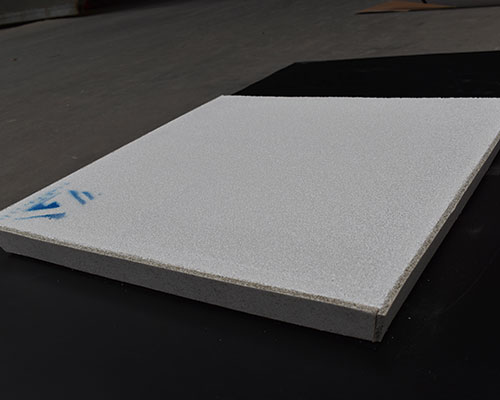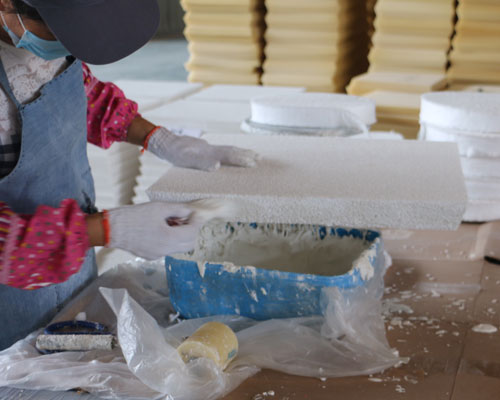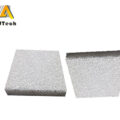Ceramic Foam Filter Casting is filled with ceramic slurry, and then the pulp is extruded. The ceramic material is wrapped around the foam fiber, then baked and sintered at high temperature, then the polyurethane is decomposed by heating, leaving the foam ceramic product – ceramic foam filter.
The research shows that the foam ceramic filter can also reduce the hydrogen content in molten aluminum while removing slag. Due to its good slag removal effect, simple operation, easy matching with other parts, and low cost, it has become a conventional purification method in aluminum processing industry. With the continuous improvement of the quality requirements of aluminum products, the requirements of the filter plate are also higher and higher.
Inclusions are the most common type of casting defects. There are many process steps in foundry production to reduce casting inclusions, such as selecting furnace material, removing metal slag before casting, and covering ladle with slag collector. The pouring ladle is bottom pouring type or teapot type, the gating system is closed type, and the horizontal runner is equipped with slag collecting bag and slag collecting trough.
The inclusions are brought into the ingot from the smelting and casting process. They reduce the purity of the metal and destroy the continuity of the metal, making the mechanical properties of the product and the stress resistance of the alloy Corrosion performance is reduced. If the inclusions are not removed, it is impossible to produce high-quality products. In the on-line degassing process, the floating process of the bubbles meets the inclusion particles to make them part of the surface, and the remaining inclusions need to be removed by the filter device. At present, filtration purification is the most effective method to remove non-metallic inclusions in molten aluminum and aluminum alloys. Without the guarantee of a suitable melt treatment process, the material cannot fully play its role.

The Ceramic Foam Filter Casting can be used in liquid metal filtration and the product has been commercialized. This liquid metal filtration process has been widely used in developed countries, and has become the simplest and most effective method to improve the mechanical properties of castings and reduce porosity and inclusions.
Ceramic Foam Filter for Casting has many advantages, such as good chemical stability, high specific strength, high temperature resistance, good thermal shock resistance, and large specific surface area. They are widely used in metallurgy, chemical industry, environmental protection, and other fields. In metallurgy, the use of ceramic foam filter plates can remove heterogeneous impurities in aluminum melt, such as slag and inclusions, which is one of the most effective ways to purify the melt.


